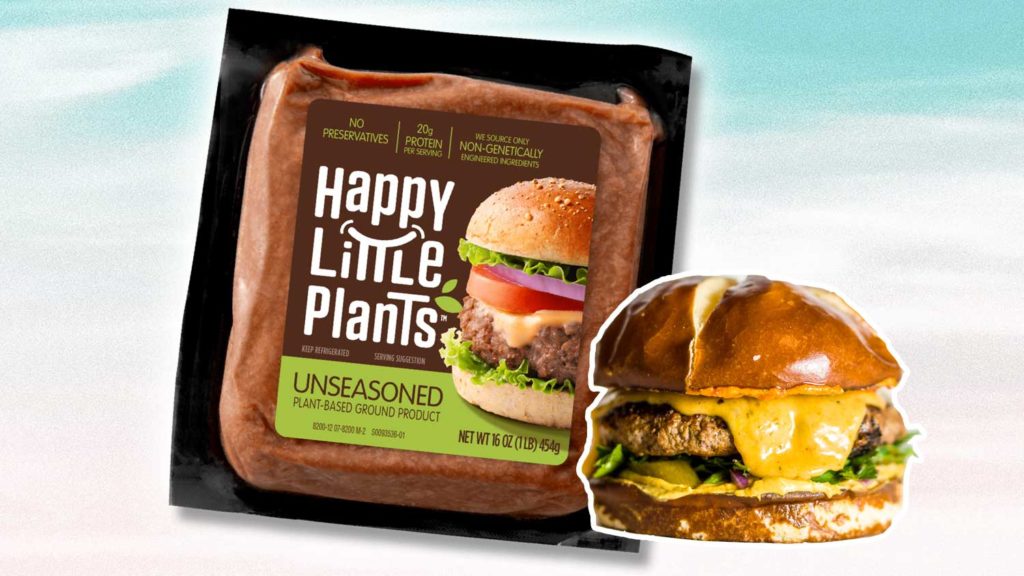Investment Dilemma: Choosing Between Beyond Meat and Hormel Foods
In the volatile world of investing, the challenge often lies in discerning potential gems amid widespread panic. This rings particularly true for companies like Beyond Meat and Hormel Foods, which operate in the contrasting sectors of alternative and traditional proteins respectively. Here we delve into the financial health and future prospects of these companies to guide investors in making an informed choice.
Beyond Meat: Innovation Meets Financial Struggle
Beyond Meat, known for its pioneering role in the plant-based protein arena, rapidly caught the eye of Wall Street and consumers alike. Its products, celebrated for their health-conscious and vegan-friendly attributes, initially saw a surge in popularity. However, the company’s growth narrative shows signs of faltering, especially within the U.S. market where consumer volume dropped significantly in 2023. Despite some international success, the overall decline raises questions about the sustainability of its current business model.
Financially, Beyond Meat has struggled to achieve profitability. A glance at its trailing 12-month earnings per share reveals a company on the brink of profitability in 2020, but recent figures tell a story of substantial losses, despite a slight improvement in 2023. The company’s ongoing efforts in cost-cutting and innovation signify a strategic pivot, yet the path to consistent profitability remains steep and fraught with challenges.
Hormel Foods: Steady Profits Amidst Challenges
Contrastingly, Hormel Foods represents the more traditional side of the protein market. As a seasoned player and a Dividend King, Hormel boasts a history of financial stability and shareholder returns, evident in its 58 consecutive years of dividend increases. However, it too faces its set of challenges, including rising costs and market shifts, such as the impact of avian flu on its turkey operations and a tepid recovery in China post-COVID-19 lockdowns.
Despite these headwinds, Hormel has managed to maintain profitability. In fiscal 2023, the company reported earnings per share of $1.45, reflecting its enduring ability to navigate market fluctuations effectively. The recent uptick in business volumes across its major lines in the first quarter of fiscal 2024 further underscores a resilient operational framework poised for gradual recovery.
The Investment Outlook: Risk vs. Stability
When comparing the two companies, Beyond Meat appears as a potentially high-risk, high-reward investment. It caters to a growing market segment that is aligned with global sustainability and dietary trends. However, its current financial instability and the uncertain longevity of consumer interest in plant-based proteins contribute to a riskier investment profile.
On the other hand, Hormel offers a more conservative investment opportunity, characterized by its diversified business model, consistent profitability, and attractive dividend yield. The company’s resilience in facing sector-specific and macroeconomic challenges positions it as a safer bet for long-term investors, particularly those with an appetite for steady dividend income.
Strategic Considerations for Investors
For those inclined towards growth-oriented, speculative investments, Beyond Meat might appeal despite its precarious financial position. The company’s potential turnaround, driven by strategic adjustments and market expansion, could yield significant returns if successful.
Conversely, conservative investors would likely find Hormel’s stable earnings, historical dividend growth, and ongoing management strategies to be more aligned with a risk-averse investment philosophy. Hormel’s recent dividend increase further reinforces the management’s confidence in the company’s future, making it an attractive option for those seeking reliable returns.
Conclusion
The choice between investing in Beyond Meat and Hormel Foods ultimately hinges on individual risk tolerance and investment goals. Beyond Meat offers a glimpse into the future of food with its innovative products, yet it comes with considerable financial risks. Hormel, meanwhile, provides a more traditional and stable investment avenue, supported by a long track record of success and resilience in the face of industry challenges.
Investors must weigh these factors carefully, considering both the current market dynamics and their long-term investment objectives, before committing capital to either of these distinct paths in the food industry.
Related:
Protein Power: Analyzing the Meat Industry Dynamics Featuring Tyson Foods, Hormel Foods, and Pilgrim’s Pride
Explore key trends in the meat industry, focusing on Tyson Foods, Hormel Foods, and Pilgrim’s Pride, amid rising demand for…



